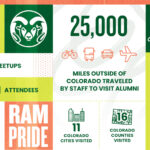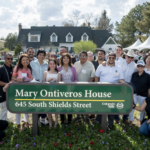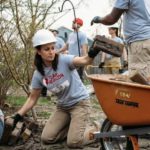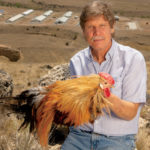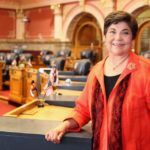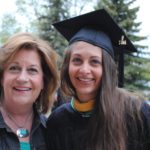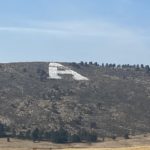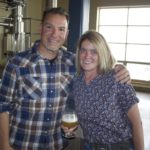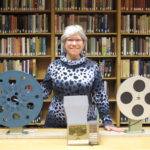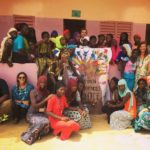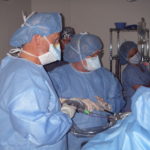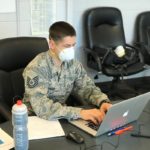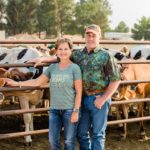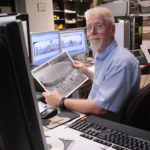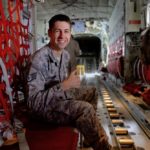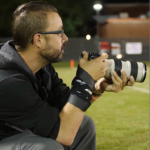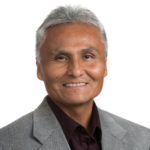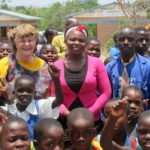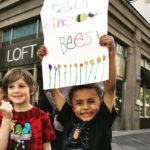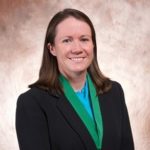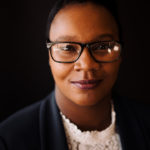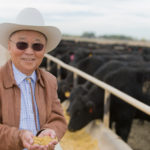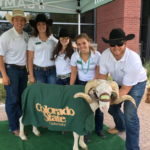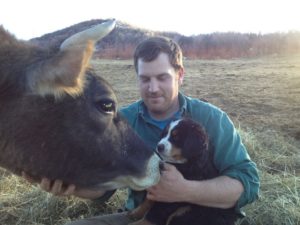
Banks Baker (M.Agr., ’13) has used his widely varied experience and degrees to be successful in fields ranging from farm and ranch management to corporate sustainability. He has spent his life, both academically and professionally, ensuring he has a holistic understanding of agriculture and the benefits it can deliver. And he’s proof that thinking outside the box can lead to important new understandings and directions that can help solve some of the world’s most pressing issues.
After growing up in Pittsburgh, Banks attended Warren Wilson College (WWC) in North Carolina, a rather unique “work college” where students are required to fill the positions necessary to operate the institution. In his first year, he worked in the university kitchen; later he worked on the farm crew and “fell in love with agriculture.” In the classroom, he majored in business and completed minors in peace studies and history/political science.
While at WWC, Banks completed an internship at The Rocky Mountain Institute (RMI), a nonprofit that focuses on sustainability. At the time, RMI operated the Windstar Land Conservancy, located on the late John Denver’s former ranch outside Aspen. The connections Banks made during this internship led to an offer to be a ranch manager, which was the first of several such positions he held.
He managed animals in integrated production systems to allow each species to benefit the others while also improving the soil they were raised on. He found the positive impacts to be significant and knew he needed to understand the science of what was happening better, so he applied to a graduate program in CSU’s College of Agricultural Sciences. He enrolled in the Integrated Resource Management (IRM) program that combined three academic departments – agriculture economics, animal science, and natural resources, into one graduate-level degree. He enjoyed his time on our campus and still maintains a connection with the previous IRM director, Dr. Kraig Peel, whom he considers a mentor.
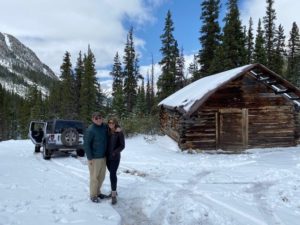
After graduation, Banks worked for the Greenacres Foundation, a nonprofit based in Cincinnati, Ohio. While there, he established a regenerative agriculture research department to holistically monitor and enumerate sustainable agriculture production systems. Greenacres continues that work today; the foundation’s website explains that its projects involve creating a “generative and sustainable approach” to agriculture and environmental stewardship. Banks left Greenacres to attend the University of Notre Dame’s Mendoza College of Business, where he earned an executive master’s degree in non-profit administration.
For five years, he served as manager of animal welfare and agriculture for the McDonald’s Corporation. He was on the U.S. Sustainability Team and focused on protein sustainability, supporting animal health and welfare and antibiotic commitments. During his time at McDonald’s, it became the first global restaurant company to set a science-based target initiative greenhouse gas reduction goal. Banks created and implemented greenhouse gas reduction strategies and worked alongside McDonald’s protein suppliers to utilize regenerative agriculture as part of their climate strategy.
Banks recently joined Genus and the Pig Improvement Company (PIC) as director of new product marketing. In this role, he will work to bring CRISPR (clustered regularly interspaced short palindromic repeats – a family of DNA sequences found in organisms such as bacteria and archaea) and gene editing to the livestock industry. He believes these technologies will have a profound, positive impact on both human and animal health and provide other holistic benefits such as improved animal welfare, reduced greenhouse gas emissions, and more efficient protein production.
Banks recently married the “love of his life,” Shelby (B.A., ’21), whom he met on the ranch in Colorado. Their family currently includes a lab/hound mix, Hoover; they hope to add to the family soon.
He is proud to note that his career has provided the opportunity to work with world-leading scientists, including CSU’s Dr. Temple Grandin and Dr. Kim Stackhouse-Lawson. He is grateful for the education and mentorship he received at CSU and is excited for the future of agriculture. “The world is facing some unfortunate realities, and agriculture has the ability to address many of them.”

